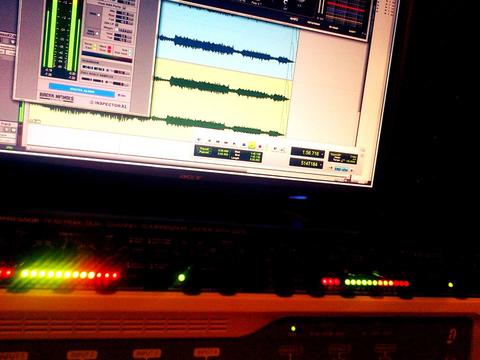

What Is Mastering?
Mastering is the final step in the music production process. At this point the record has been composed, arranged and mixed, the final step is to polish up the mix, add fade ins/outs, adjust the frequency balance & stereo image, make it sound bigger, fatter, louder and clearer, this step is called mastering.
The mastering engineer will also apply spreads when mastering an album (time/space between each track), ISRC and PQ Codes.
There are several tools used by the mastering engineer to master a track, I’m going to talk about the basic mastering tools: Eq, Compression & Limiting.
Eq:
The Equalizer is a tool for altering the frequency balance, you can use it to reduce unwanted frequencies or boost missing frequencies. In the mastering stage I usually cut the unwanted frequencies before compression to “clean” the signal and compress a cleaned signal, and if needed I'll boost certain frequencies after the compression. However, there is no fixed rule for the order of compression/EQ, in the end you have to make choices that benefit the master the most.
Here are some starting points for boosting / cutting frequencies in the mastering process:
1) 20-140Hz – Sub frequencies: Deep bass sound. (Also referred to as the “oomph” bass sound)
2) 140-400Hz – Mid-low: Frequencies that compliment the sub frequencies, altering these frequencies the right way will give the track a tight low end. Boosting this area too much and the track will sound muddy / boxy, too little and the track will sound thin / hollow.
3) 400-2500Hz – Mid frequencies: Boxy sounding frequencies (400-600Hz), nasal sounding frequencies (600-1000Hz), bright sounding frequencies (1000-2500Hz)
4) 2500-5500Hz – High Mid Frequencies: Right amount will sound nice and clear, too much will sound harsh, too little will sound muffled / muted.
5) 5500-20.000Hz – High Frequencies, audible at slight changes (5500-12.000Hz). very subtle audibility at slight changes (12.000-20.000Hz).
Note: These are just starting points, make sure you listen to the impact the eq settings have on the mix and adjust the settings to the needs of the mix.
Compression:
A compressor is used to reduce the dynamic range of a signal, however in mastering there are more purposes for a compressor, for example making the mix sound fuller / fatter or punchier. Compression also helps making the mix louder, using gentle compression means the limiter won’t be hit as hard as without the compression, resulting in more natural sounding masters without a crushed or distorted sound.
Keep in mind when compressing during a mastering session that slower attack & release times will cause less audible compression, slower settings will make a track punchier too. Fast settings tend to reduce transients “the punch”.
2-3Db’s of compression at a ratio of 2:1 is usually a good starting point, but of course every track is different and you’ll have to listen to what the compression does to your signal, and adjust the settings to the needs of the mix.
Limiting:
A limiter is basically a fast compressor, which doesn’t allow a signal to pass a certain threshold. There is always a brick wall limiter involved when mastering a track in order to increase the perceived level of a track. This means that the track will not actually be louder, but it will sound louder to the human ear. Though it sounds easy and straight forward there is a catch, limiting can introduce distortion and other unwanted side effects.
A well equalized & compressed mix can easily handle 2-3Db’s of gain reduction by a limiter, but you’re going to have to listen to the effect every component in your mastering chain has on the mix, and I’ll say it again, adjust the settings to the needs of the mix.
At the end of the day the quality of the master depends on the quality of the mix, a better mix is a better master. And remember, you can’t polish a turd! If there is a possibility to go back to the mixing session to improve the mix you might have to do that if needed, it will benefit the master greatly.
Written By: Roy “R-skillz” Wehbe
Music Producer, Mixing & Mastering Engineer
Twitter/Instagram: @BeatsByRskillz
 info@modernproducers.com
info@modernproducers.com  Login
Login



